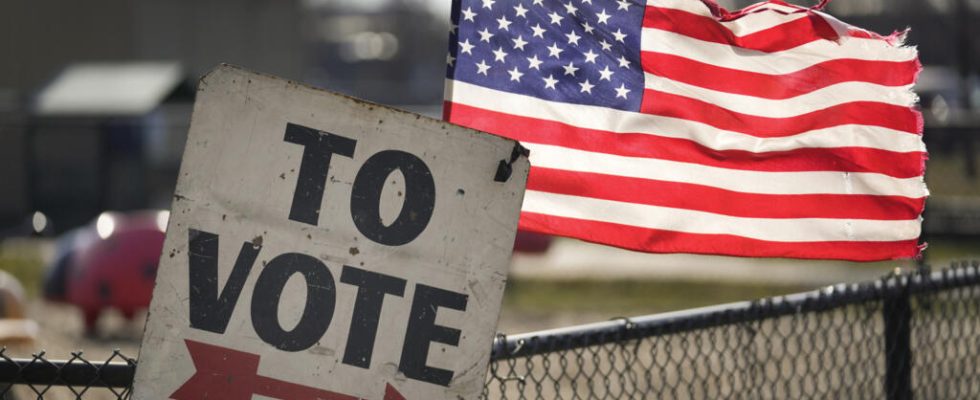Across fifteen states and one territory, American voters will vote, Tuesday March 5, on the occasion of “Super Tuesday”, a crucial date in the calendar of presidential primaries in the United States, but which this year should confirm the inexorability of a Trump-Biden duel in November 2024.
3 mins
This election day traditionally propels candidates towards the nomination or, on the contrary, dampens the aspirations of some. But this year, the game already seems almost done. The Democrat Joe Biden does not have a serious rival for the nomination, a typical fact for an outgoing president. But more unusual, Donald Trump, as an ex-president trying to return to the White House, has crushed the Republican competition thus far.
The former United States Ambassador to the UN under the same Donald Trump, Nikki Haley, had previously pledged to remain a candidate at least until “Super Tuesday”. Tuesday therefore promises to be the day of the last chance for the only rival still in the running of Donald Trump, since with the exception of the primary Sunday in Washingtonthe ex-president has won all the states that have already voted in the primaries.
Tens of millions of voters
Tens of millions of Americans are called to the polls, from Maine in the far northeast of the United States, to California on the west coast, to Texas in the south, and even to American Samoa, small territory in the Pacific. Alabama, Arkansas, Colorado, Massachusetts, Minnesota, North Carolina, Oklahoma, Tennessee, Utah, Vermont, and Virginia will also vote.
To be given the keys to the nomination, candidates must win a certain number of delegates who will then go to their party’s national convention. It is then these delegates who will nominate the official candidate. Most states that will hold primaries this Tuesday allocate their delegates on the same principle: the candidate obtaining the most votes wins, and wins all the state’s delegates. In other words, it doesn’t matter the exact number of votes collected, the important thing is to win. A system which therefore tends to favor the favorites.
An advantageous system for the favorites
To secure the nomination, on the Republican side, 1,215 delegates are needed, or half of the 2,429 total who will nominate the Republican Party presidential candidate at the convention in July. Donald Trump currently has 247, Nikki Haley 24. At stake on Tuesday, 874 delegates. Enough to offer the ex-businessman an almost insurmountable lead from the beginning of March. His campaign team predicts he will win 773 delegates on Super Tuesday and be mathematically unbeatable two weeks after that.
Former South Carolina Gov. Nikki Haley says the 40 percent of the vote she won in New Hampshire and her home state shows a Republican Party still divided over Donald Trump. She also maintains that her chances would be much higher than those of the ex-president to beat Joe Biden in November, a duel between a septuagenarian and an octogenarian that no one wants, she says. For experts, if she has held on until then, it is mainly in the hope that Donald Trump will be prevented from competing in November due to his legal setbacks or potential health concerns.
The Democratic Party has 3,934 delegates at stake, but the principle is the same. Joe Biden, whose inauguration is not a priori as a formality as outgoing president, must reach the magic number of 1,968. He has already won 206 delegates, and could be assured of his nomination in March.
The Republican National Convention will be held in July in Milwaukee, Wisconsin, while the Democratic National Convention will take place in August in Chicago, Illinois. Enough to announce the longest presidential campaign in the history of the United States.
Read alsoBiden and Trump on the US-Mexico border: the fight against immigration, a promising electoral theme
